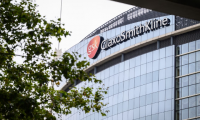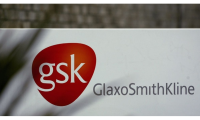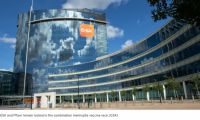-
GSK’s RSV vaccine approved by FDA for older adults
- Source: drugdu
- 143
- May 12, 2023
-
GSK to buy Bellus Health and its chronic cough drug for $2B
- Source: drugdu
- 350
- April 20, 2023
-
GSK outlines deal to send cell therapies back to Adaptimmune
- Source: drugdu
- 262
- April 12, 2023
-
GSK will have to pay additional royalties to AstraZeneca on cancer drug Zejula
- Source: drugdu
- 157
- April 6, 2023
-
China’s NMPA accepts GSK’s drug application review for Nucala to treat SEA
- Source: drugdu
- 131
- March 16, 2023
-
Chasing Pfizer, GSK’s 5-in-1 meningococcal vaccine delivers phase 3 trial win
- Source: drugdu
- 128
- March 16, 2023
-
GSK’s PD-1 inhibitor Jemperli approved in the UK
- Source: drugdu
- 287
- June 7, 2021
-
NICE turns down GSK’s IV Benlysta for systemic lupus
- Source: drugdu
- 326
- June 4, 2021
-
EC clears GSK’s Benlysta for lupus nephritis
- Source: drugdu
- 498
- May 10, 2021
your submission has already been received.
OK
Subscribe
Please enter a valid Email address!
Submit
The most relevant industry news & insight will be sent to you every two weeks.












